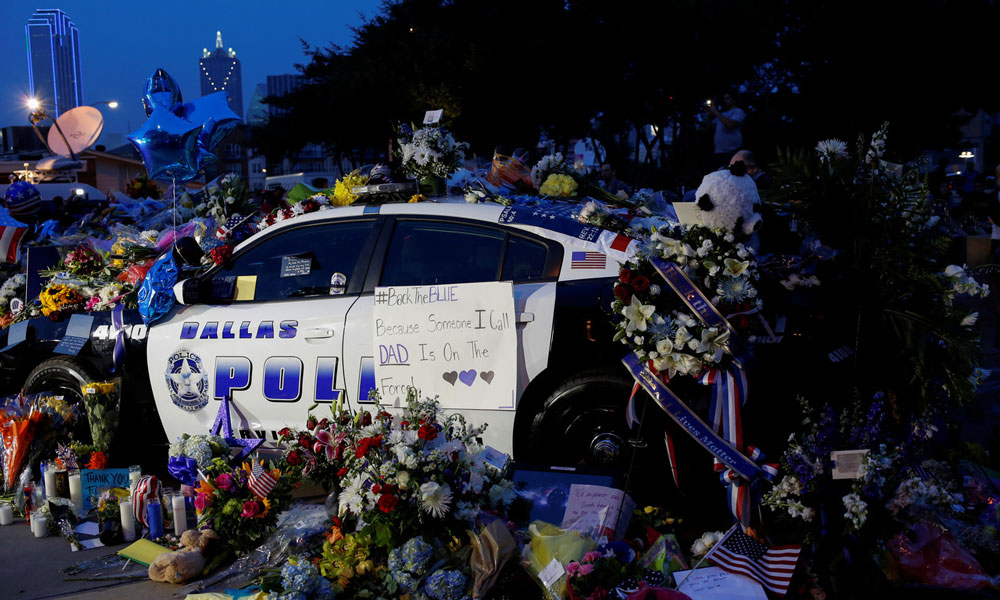
Robot Used in Dallas Police Shooting Raises Ethical Quandary, Groups Say
The decision by Dallas police officers to use a robot to end the standoff with police shooter Micah Xavier Johnson has groups on both sides wondering if that means robotics are now fair game as a method of deadly force for police departments nationwide—and what ethical questions that raises.
Last week’s deadly shooting of police officers at an otherwise peaceful protest in Dallas, the deadliest incident for law enforcement since the Sept. 11, 2001, terrorist attacks raised a number of questions of tactics for police officers.
It also introduced a question that hadn’t previously arisen in any context: What are the ethics of using robots as a form of deadly force?
Micah Xavier Johnson, the U.S. Army reservist responsible for the shootings, was killed using a remotely detonated “bomb robot,” representing the first time such a tactic has been used by a police department.
Groups around the country say that it’s likely that the incident set a precedent for police forces.
“Nobody wanted to be the first but, yeah, there is no question that it proved effective and the door is now open,” noted Sid Heal, the president of the California Association of Tactical Officers, in comments to the Associated Press.
The incident is already raising questions for some robotics manufacturers that produced their devices largely for military needs.
Joergen Pedersen, the chair of the National Defense Industrial Association’s robotic division and the CEO of RE2 Robotics, said that he didn’t see a problem, as long as good judgment was used.
“If these robots are used in manners for which they were unintended, we would expect that the officers who are there to keep citizens and themselves safe would use good judgment where the application of lethal force is a last resort,” Pedersen told Defense One.
Questions of Ethics
The question, of course, is whether such devices will always be used as carefully as they were during the Dallas incident—something that American Civil Liberties Union Senior Policy Analyst Jay Stanley has already raised as a potential concern.
“Because ground robots may allow deadly force to be applied more safely and easily, they raise the danger that they will be overused,” Stanley told the Los Angeles Times. “When things get easier to do, they tend to be done too much. Remote uses of force raise policy issues that should be carefully considered and addressed by our society as technology advances and should remain confined to extraordinary situations.”
Others, like Arthur Holland Michel, codirector of the Center for the Study of the Drone, are less torn by the ethical questions around the devices, because, ultimately, humans are in control.
“These robots are not autonomous,” Michel emphasized in his comments to the L.A. Times. “They do not make decisions on their own. They are sophisticated remote-control systems.”
Concerns such as those raised by Stanley are being heavily debated by experts—with The New York Times featuring a wide-ranging discussion on its website.
Rethinking Military Surplus
Some police groups, beyond the current incident, see a potential opportunity to change the conversation around military-style equipment, the distribution of which was greatly limited following an executive action by President Barack Obama after 2014’s Ferguson protests put such equipment in the spotlight.
George Hofstetter, who leads the Association for Los Angeles Deputy Sheriffs, told Reuters that he felt the president’s executive action showed a degree of overreaction.
“We’re not advocating that we’re going to have an Abrams tank rolling down the street any time soon,” he told Reuters, “But I think the restrictions have gone a little too far.”
A memorial for Dallas police officers killed last week. (Shannon Stapleton/Reuters)






Comments